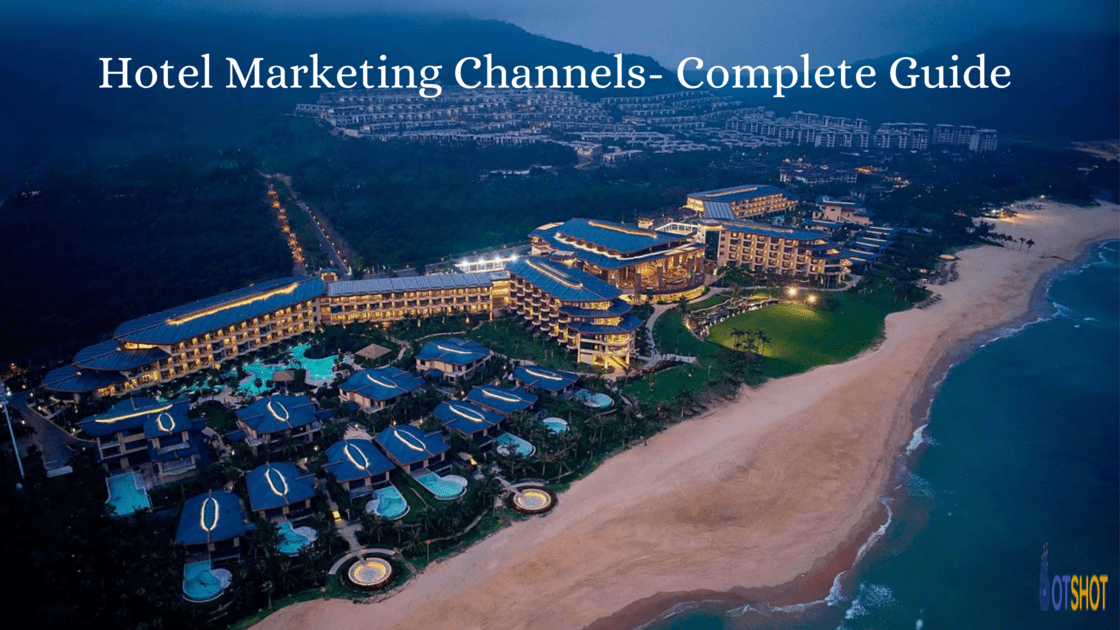Introduction: –
In the world of hotel marketing, which is an unsteady one, people are constantly moving into and out of the hotel. Today, hotels apply many tools of the trade to attract guests.
Each one has some good things and bad things. It may be confusing to choose from the old methods such as going to a travel agency, to the new ways such as social media with the correct tools and plans.
However, hotel owners do not have to worry because we are here to answer all your questions.
We will guide you on how to effectively customize the different marketing techniques to attract more customers and make more profit.
Therefore, this blog is an exciting journey where you will uncover the hidden keys of hotel marketing.
What are Direct Booking Platforms, and why choose them?
The direct booking platform is a website or a system where the guests can book their hotel accommodation directly without the use of third-party websites.
This way hotels will be able to have a higher level of control over pricing, availability, and guest experience.
Switching to straight bookings can be good for hotels because it means that they don’t have to pay fees, which adds to their profit margin.
Furthermore, this approach enables the formation of stronger guest relationships. Having direct bookings gives hotels access to important guest data which they can further use to personalize their marketing campaigns and come up with a loyalty program.
Various Direct Booking Platforms
● Hotel Website:
The website of the hotel serves as a platform where the guests can make direct bookings.
It is simple to operate, safe, and displays rooms, amenities, services, and special offers.
● Mobile Apps:
Hotels offer phone apps, where guests can book their accommodation right from their phone. They provide special deals, mobile check-in, and in-room service.
● Call Centers:
Others prefer to communicate with a real person. Hotels have a call center where customers can call to arrange a booking. They get personalized assistance with the answers to their questions.
Benefits of Direct Booking Platforms:
● Higher Profits:
Directly reached guests, hotels make more of the money the visitors spend because they do not have to share their earnings with the other booking platforms.
● Control Over Brand Experience:
With direct booking sites, hotels that distinguish themselves by highlighting what sets them apart can create a unique and memorable experience for the guests.
● Access to Guest Data:
Direct bookings give hotels the ability to understand the tastes and habits of guests, allowing them to offer desired services and specials.
Here we are done with our first channel Direct booking and its benefits, next we conclude OTA’s
What are Online Travel Agencies (OTAs)?
Online travel agencies, also known as OTAs, are online platforms where travelers can book accommodations, flights, car rentals, and many other travel-related services. Imagine giants such as Booking.com, Expedia, and Airbnb. Such websites provide a comfortable place to shop for travelers, enabling them to have many alternatives across various destinations.
Why OTAs Matter:
- Visibility:
OTAs have an excellent reach, with millions of potential guests across the world. This leaves your hotel exposed to a massive audience.
- Reach:
OTAs will sell your hotel to tourists from any part of the world, regardless of where your hotel is.
- Accessibility:
OTAs provide easy browsing and anytime, anywhere booking, which makes travelers feel comfortable.
- Trust:
By partnering with well-established OTAs you will increase their confidence in your hotel with potential guests, which will be reflected in your credibility.
- Dynamic Pricing:
OTAS provides flexibility in pricing based on demand and market trends, which is a factor hotel use to improve their revenue and occupancy.
Examples of Popular OTAs:
- Booking.com:
With 28M listings all over the world, it is the best option for tourists as its website is easy to use, has lots of search options, and good prices.
- Expedia:
They present a broad variety of travel options that range from flights to adventures all over the world. It is the loyalty program of Expedia Rewards that fuels the people to continually come back.
- Airbnb:
First, famous for home rentals, Airbnb now has different products including boutique hotels. People are given a chance to have personalized stays.
In this section we have covered OTA’s and its benefits and top companies using OTA’s.
But now we are going onto the most trending option of all time, which is social media and how it is helpful for hoteliers.
Why Social Media Matters for Hotel
During social media speaking isn’t the biggest aspect people don’t notice/notice that social media isn’t simply a trend, but rather a fundamental component of modern communication.
Considering the scale of the users, social platforms such as Facebook, Instagram, Twitter, and LinkedIn are, obviously, platforms that can link hotels with people who want to book the rooms on a one-on-one basis.
What makes social media the top choice?
- Engagement:
Via social media hotels can directly interact with guests, respond to questions, solve issues, and showcase guests at special times.
- Brand Awareness:
The hotels active on social media have a chance to be seen by more people, even those who didn’t know about them previously.
- User-Generated Content (UGC):
Visitors post their stories on social media and hotels can employ these stories as authentic examples and cool ads.
These three are the most prominent reasons to opt for social media, but most of you still have doubts about creating a successful social media campaign.
How to Create a Successful Social Media Campaign
To unleash social media’s potential, hotels must craft a strategic plan specific to their brand image and customer base.
- Know Your Audience:
Know your audience and craft content that speaks to them. High-end resorts might gain popularity on Instagram while business hotels could be oriented on LinkedIn.
- Create Great Content:
Integrate high-definition imagery and video to illustrate your hotel’s greatest strengths. Add a personal touch with interesting captions and stories.
- Engage Regularly:
Make sure to keep your audience busy by responding as fast as possible to comments and messages. Participate in talks and be aware of tendencies.
- Use Paid Ads:
Increase your impact by advertising to the right audience using platforms such as Facebook and Instagram. Target precise populations and interests to achieve the best results in your ad spend.
Creating a successful social media campaign is a skill. The above points are the most common parts of the campaign.
To get the best results using social media campaigns, get a social media expert and boost your ROI.
But rather than social media, a digital marketer prioritizes SEO, because SEO is the key to improving your site results in search engines.
Let’s understand what and why SEO.
What is SEO and Why Does it Matter?
SEO, which improves your site’s structure and content to rank higher in search engine results pages (SERPs), is the process of optimizing.
Matching your website to what search engines, such as Google, look for when determining relevance and authority assists you in being found by future guests who are actively searching for a place to stay.
Crucial Aspects of SEO:
- Keywords are Key:
Identify and use relevant keywords on your website everywhere to answer user questions and aid in search engine optimization.
To illustrate, if your hotel is in Mumbai’s center, exploit phrases like “luxury hotel in Mumbai” to draw in interested visitors.
- Content is King:
Compelling and informative content on the site is not only captivating but also boosts SEO.
From descriptions of hotel amenities to blog posts about local attractions, quality content will create your hotel as a leader in the industry. Integrate keywords in the content to improve search visibility.
- User Experience matters:
Place mobile-first, quick loading times, and intuitive navigation at the core of your SEO.
Present valuable content in the form of virtual tours and interactive maps to intensify user engagement and attract return visits.
- Local SEO is Essential:
Optimize your Google My Business listing, encourage customers to leave reviews, and show the advantages of staying in the city center.
This way you will attract more guests from the local search results. Add schema markup to improve the probability of being in the featured snippet.
- Track and Analyze:
Utilize analytic tools like Google Analytics to check website performance.
Track metrics including organic traffic and keyword rankings to enhance your SEO strategy by spotting areas for improvement.
Overall, Direct bookings, OTA’s, social media and SEO are some top channels for marketing, one can also go for e-mail marketing, it is also a convenient option to get maximum return.
Wrapping Up,
Therefore, smart hotel marketing channels requires a well-organized strategy to deal with the changes in the platforms and channels.
Knowing what every channel can or cannot do lets hotels establish a plan that appeals to the specific people they are trying to connect with.
The type of distribution channels will depend on whether we use OTAs, social media, or special hotel channel manager software to facilitate the process
However, it will be necessary to be ready to change and adapt to the customers’ wishes.
To thrive in the highly competitive hospitality industry, hotels should keep abreast of the news and try new things to find new ways to build and grow their businesses.
Therefore, hotel owners select the appropriate instruments and strategies and embark on their marketing journey as master marketers.
Goals can be achieved in many ways, but appropriate channels can help you get there.”


